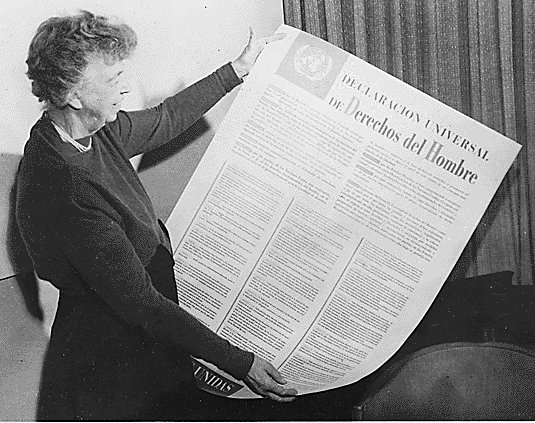
Anti-Racism Project For Unemployed Youth
author
dr Michael Düsing, Heike Liebschsupervisor
Dr. Michael Düsing, Heike Liebschlocation
SaxonyProject description
Despite a good education and career training, they are unable to find work and must draw welfare. This is a bitter reality for young people in the Freiberg area, on the German-Czech border. A feeling of hopelessness leads many to jettison their social values. Intolerance, xenophobia, racism and anti-Semitism can be the result.
The Christian Youth Village Organization of Germany (CJD) wanted to offer an alternative. Thus, in 1998, the Freiberg branch of CJD Chemnitz established “Shalom Sachsen-Böhmen” (“Shalom Saxony-Bohemia”), Germany’s very first project of this sort.
Approach
The project’s unique approach was to combine career training with the study of regional Jewish history. Dealing with local history would help turn students away from anti-Semitism and toward anti-racism. The program was carried out in close cooperation with the Jewish communities of Dresden and Chemnitz, the “HATiKVA” association in Dresden, and with Czech partners – the Theresienstadt Initiative and the Jewish communities of Prague and North Bohemia. A social studies teacher and a theologian oversaw the work.
These 15 young adults, aged 18 to 28, took on the task of discovering and documenting the history, the achievements, but also the suffering of the Jewish population in their region. At the same time, participants were given the chance to get hands-on experience in new career fields and gain the qualifications necessary to help them rejoin the work force. The two-year work and education program, supported by contributions from the county of Freiberg and the European Community Initiative INTERREG II, was divided into modules in the modern career fields of information and media services, each supplemented by six-week internships.
The documentary work included:
1. Cataloging Jewish graves in Dresden’s New Jewish Cemetery and entering the data into a comprehensive database:
Initial results, which gave an immediate impression of the importance and symbolism of Jewish cemeteries, their history and their state of upkeep in Saxony and North Bohemia, has already been presented to the Jewish community in Dresden.
2. Creating a traveling exhibition on Jewish cemeteries in Saxony and North Bohemia:
So far this exhibition has been held in the Chemnitz City Hall, in the Peterskirche in Leipzig, in Dresden and in Freiberg.
3. Researching material for the book project “Wir waren zum Tode bestimmt (“We were condemned to die”)- Lodz – Theresienstadt – Auschwitz – Freiberg – Oederan – Mauthausen”, mapping the history of the Freiberg subsidiary of the Flossenbürg concentration camp:
1000 Jewish women from Czech, Slovakia and Poland were used as forced laborers for the Nazi arms industry [see document], in the company “Freia GmbH” [see photo]. Many of them were deported to Auschwitz from the ghettos of Lodz and Theresienstadt, and from there selected for forced labor. The youth presented their results to the public in a small exhibition on the long-repressed topic of “Forced Labor in Freiberg and Oederan” [see photo].
4. Inviting former forced laborers to Freiberg:
The most important and, at the same time, most difficult task of the “Shalom Saxony-Bohemia” project came out of research undertaken on the forced labor camps of Freiberg and Oederan. The young people first traced the present locations of survivors of these camps, now residing in the USA, Poland, Israel, Germany and even Australia. They then wrote to them, inviting 22 survivors from Israel, Poland and Germany to Freiberg. The intention here was to establish a long overdue public mark of remembrance and also set out our responsibilities for the future.
Public Support
This project would not have been possible without the huge amount of public support that was given: The Free-State of Saxony, the County of Freiberg, the cities of Freiberg and Oederan, private individuals and parishes donated several thousand marks, as did city and district councils of all democratic political parties.
Results
Meeting these Jewish women who had survived being ‘shipped’ from Lodz and Theresienstadt via Auschwitz into the Saxon mountain town, was an emotional experience for the young people. The meeting received wide coverage in the media. Their report formed a substantial part of the book “Wir waren zum Tode bestimmt – Lodz – Theresienstadt – Auschwitz – Freiberg – Oederan – Mauthausen”, published by the CJD in May 2002, which chartered the history of the Friberg and Oederan subsidiaries of the Flossenbürg concentration camp. [See documents]. In this way, the recollections of former forced laborers of the horror of the holocaust could be publicized.
The pilot phase of the “Shalom Saxony-Bohemia” project, which was completed in March 2000, was a tremendous success. For one, Freiberg has come closer to its Nazi history than many other German cities. Moreover, many of the participants have been able to re-enter the workforce with their new qualification as “technical memorial assistant” or “office administrator”: Two-thirds were able to find a job or an advanced training position while still taking their qualifications or immediately afterwards. The “Shalom Saxony-Bohemia” project also received political recognition: It was given an award by the Federal Ministry for Family Affairs, Senior Citizens, Women and Youth as part of the national contest “Fit für Leben und Arbeit – neue Praxismodelle zur sozialen und beruflichen Integration von Jugendlichen (Fit for Life and Work – new models for the social and career integration of youth)”.
Follow up Project
A second project began on December 1st 2001 as a follow-up to the first under the title “Shalom – Jobs and Qualifications for Unemployed Youth”. 10 young adults are to continue researching Jewish life in the Freiberg region in central Saxony until 20.11.2004. This new project is supported by the Federal Government’s antiracism project, XENOS, and the Federal Employment Office. After three years, the youth will be qualified as “specialists for information and media services”.
Contact
dr Michael Düsing, Heike Liebsch